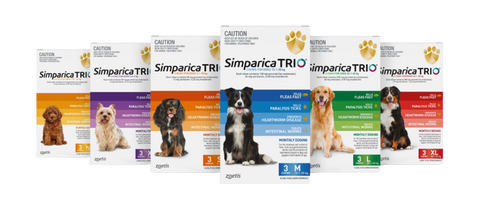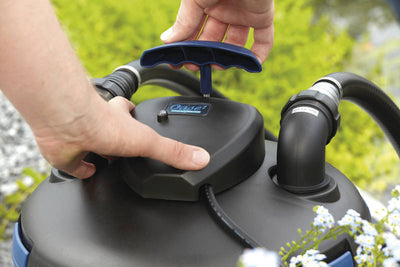
As winter approaches and temperatures drop, you might think it's safe to pause your pet's tick and flea prevention. But hold on — many dogs are still at risk of ticks and fleas even during the colder months.
Not only can fleas find their way into your home during winter (typically hitching a ride on cats, mice and rodents seeking warmth), but many tick species can survive – and even thrive – throughout the winter. This risk depends on where you live and travel with your dog, but most regions of Australia are affected.
Take the Bite out of Mosquitoes and Heartworm
While winter may slow down many species of ticks and fleas, certain areas of Australia are not cold enough to kill these parasites or stop their activity. Because ticks and fleas can carry diseases that harm your dog, it’s best to keep them protected all year long. If your particular region of Australia recieves high rainfall or of there is water about, there may be the risk of mosquitos breeding. Mosquito bites on your dog are capable of transmitting deadly heartworm.
Risks of Ticks in the Winter
While unlikely in the Southern Highlands, specific ticks, like the paralysis tick located on the east coast, can live and remain active all winter. Ticks such as the brown dog tick and bush tick can also be a threat during colder months.
For instance, the paralysis tick can be active in temperatures as low as 4°C. This means that in many parts of Australia, it's not cold enough to stop tick activity. The range of ticks is expanding beyond traditional areas, making it crucial to keep your dog on tick preventive medication year-round.
Risks of Fleas in the Winter
In mild climates, fleas can be a year-round nuisance for your dog since it never gets cold enough for them to go dormant. In colder climates, fleas can survive in warmer areas like sheds, kennels, or in and under homes. All it takes is one mild day for fleas to become active again.
After major wet weather events, such as floods, fleas are very common in parts of Australia. Additionally, if you plan on traveling during the winter with your dog, you may be heading to a region where ticks and fleas remain active year-round. If you live in or travel to an area affected by these weather patterns, it’s important to maintain their regular treatment to protect them from the diseases that fleas carry.
Protecting your dog from ticks and fleas during winter is just as important as during the warmer months. Ensure you keep up with their preventive treatments to keep them safe and healthy all year round.
Our team of knowledgeable staff are happy to provide more information about establishing the righ preventative flea and tick treatment for you pet.
© weknowpets 2024







